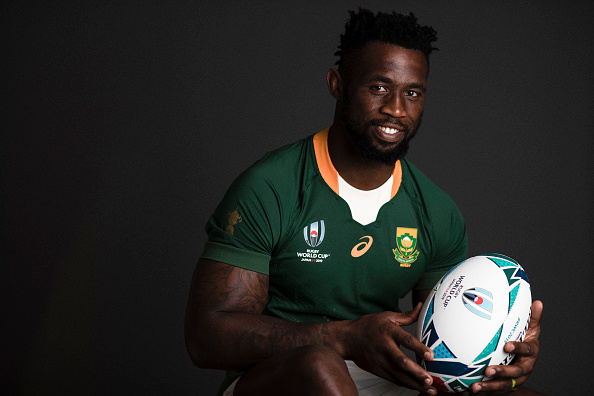A teenager on debut and a change at flyhalf headlined a new-look Springbok lineup in Sydney that brought out the best in veterans Siya Kolisi and Willie le Roux, and which will hopefully spark a Springbok revival, writes ZELIM NEL.
After South Africa’s dismal showing in Adelaide, I warned that the world champions were at a crossroads and, though I expected them to win in Sydney, it would not hide their stagnation.
I stand by what I wrote – the momentum gained from a riveting, all-action performance against the Wallabies to bank a first win in Australia since 2013 will vanish if South Africa doesn’t back it up against Argentina in Buenos Aires in a fortnight. But the Bok response to a dire loss in Adelaide was unequivocal confirmation that the current group has the capacity and the know-how to go back to back at the 2023 Rugby World Cup.
Kolisi and Le Roux were magnificent, the veteran fullback crucial to taming the colts in a fresh backline that was long on ability but short on experience, while the Bok skipper tapped into an imperious vein of form to produce some of his finest work as a hard-charging ball-carrier and breakdown threat.
ALSO READ | Five challenges facing world champion Springboks in Australia
In the absence of several frontline world champions from a team that had this year looked bored with biding their time until the next World Cup, Kolisi and Le Roux chiefly had to shoulder responsibility for picking up the slack and contributing the missing intangibles, such as leadership, decision-making and composure under fire.
The responsibility sent a jolt that was also felt by the rest of the veterans and, as the match went on, the emotional investment in every collision and contest became more noticeable. What some may call passion – which had faded to the point of invisibility in losses at Ellis Park and then Adelaide – was rekindled. And the Boks’ world-renowned belligerence burst into flame in the scuffle following Makazole Mapimpi’s try when Eben Etzebeth appeared willing and able to tear Wallabies prop Allan Alaalatoa in half like a fresh Panini.
The error rate was high, as to be expected. In his first Test start at flyhalf, Damian Willemse peppered moments of exceptional skill and athleticism with poor kick execution. This is partly to blame for the Boks failing to capitalise on an excellent pressure plan in the first half, but they did manage to stay on script thanks to the direction of Kolisi and Le Roux.
Though Rassie Erasmus’ changes to the squad were long overdue and ostensibly forced by injury, the merits were immediate and obvious. Willemse made tacklers miss with ease, magically tidied up a poor pass and later took the ball to the line before floating an audacious offload to Lood de Jager for a break.
ALSO READ | Springboks name uncapped Moodie for Australia Tests
The Bok attack is immediately and obviously more dangerous with him at flyhalf than it has ever been with Handre Pollard in the No 10 jersey, though Willemse’s future there will be hitched to an improvement in his goal-kicking.
Canan Moodie proved he’s more than able, scoring a heroic try off a Jaden Hendrikse contestable kick and looking very comfortable on Test debut at the age of 19, just months removed from volunteering as a ball-boy at Loftus Versfeld for his Blue Bulls teammates in the Currie Cup.
Hendrikse was solid if not spectacular, matching Nic White for banter and off-the-ball tricks and launching the bombs central to the Bok plan.
Pieter-Steph du Toit has been central to the Bok pack since 2016 but nobody is frantic to find out when he will be back and that’s down to the tireless, selfless and often unrecognised work rate of Franco Mostert.
The Bok front row won the scrum battle and went beyond 60 minutes, showing it is not only possible but sometimes to the benefit of the team for an effective combination to play for more than 40 minutes.
The world champions made some brave calls and then pulled together to find a way to clinch a rare victory in Australia over a Wallabies team that, under Dave Rennie, is growing in confidence and attitude.
It’s a magnificent result bettered only by a performance that has hopefully confronted Erasmus and his charges with the reality that nobody is indispensable and a week is a long time in Test rugby.
We’re roughly 50 weeks from South Africa’s opener against Scotland in Marseille in 2023, and this year has taught Erasmus nothing if not that the best World Cup plan is made up of one-week objectives.
Follow African Insider on Facebook, Twitter and Instagram
Source: SA Rugby
Picture: Getty Images
For more African news, visit Africaninsider.com


